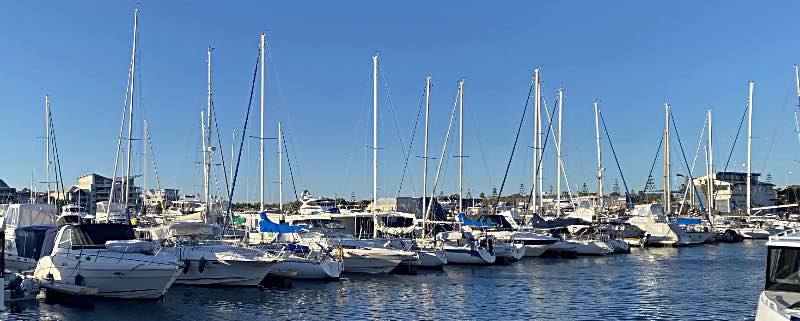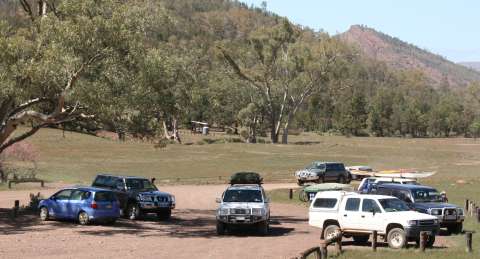Introduction
|
How do I view ethics in regard to these questions?
It would be possible to write at length about this point; I will keep it very short. Primarily my points will be based on something close to utilitarianism; 'the greatest good for the greatest number'. I fully recognise that there are deficiencies in utilitarianism and certainly no system of ethics can be based on a simple rule consisting of seven words. Still utilitarianism is a good starting point. Another good, and very understandable, basis for ethics is the Golden Rule: "do to others as you would have them do to you". Finally, I suggest that a good question to ask about whether or not an action is ethical is: "what if everyone did that?"|
|
Ethical consumption and use of energy resources
As discussed in the section on Climate change and Australian Governments the average Australian consumes far more and is responsible for far more emissions than the average global citizen. This is unethical.We all need to do our part in moving the global economy toward sustainability, and at present Australians are among the worst offenders in excessive consumption and unnecessary emissions.
I've written on ethics in general on another page on this site.
Energy and Australia
Australia has an abundance of natural energy resources: coal, oil, gas, sunlight, wind, geothermal, waves, tides and more. What are the ethical considerations involved?I think there would be general agreement that for a person to use up all of something in his lifetime – for example, for a farmer to run a farm in such a way as to destroy its fertility – and leave little for his children, would be unethical. The present generation is:
- Using up the planet's readily available petroleum resources with no consideration for any need that future generations might have for petroleum;
- Burning fossil fuels at such high rates as to be doing irreparable damage to the atmosphere and the oceans is plainly unsustainable and unethical. (So much carbon dioxide is already in the atmosphere that to burn more fossil fuels at all is unethical).
|
|
Climate change and Australian governments
Australian governments, particularly Coalition governments, but Labor governments too, have been too slow to act of reducing fossil fuel use and when they have acted it was without the necessary determination and urgency. This should be a matter for shame for all decent Australians.Australia ranks 53rd in the world in population, but sixth in the world in the CO2 produced by its electricity industry; it has 0.3% of the world's population, but produces 1.2% of the world's greenhouse gasses; it is well up among the worst greenhouse polluters on the planet. Australia's per-capita greenhouse gas emission rate is about 17 tonnes per annum, more than three times the world average, which is about 5 tonnes per annum. This gives Australians an ethical responsibility to reduce the harm we are doing to the planet. If you are not doing what you can to reduce your greenhouse impact you are enjoying your life at the expense of your kids lives.
The USA and Australia, with a couple of small middle eastern oil states, are the worst per-capita greenhouse polluters in the world. The Howard, Rudd and Gillard governments all failed to treat the problem with anything like the urgency it require. The Abbott Government was even worse, the Turnbull Government was a great disappointment and the Morrison Government was perhaps the worst of them all.
Obviously, in our rate of emissions, on the principle of "What if everyone did that?", we in Australia, people and government, are behaving unethically. If every other country was to produce greenhouse gasses at Australia's rate the climate change situation would be much worse than it is.
|
|
How we travel
|
Many people make the personal choice of driving a vehicle that is far bigger and heavier, and requires more fuel, than they need. One must only need to look at the vehicles in any shopping centre car park to confirm this observation.
|
|
And as mentioned under Our attitude many vehicles have the exhaust systems modified to be more noisy showing that their owners care only for their enjoyment and not for how much the noise they make may annoy other people.
Our houses
|
According to Shrink that footprint, an average Finish house is 38% the size of an average Australian house (82 against 214 square metres). Finland has about as high a standard of living as Australia. The people of the UK make do with even less floor space per person than the Fins, and then there's China and India (see the table on the right).
Of course a big house is more expensive to build than a small house. This is part of the reason that so many Australians can't afford to own their own house.
Compared to houses in places with cold climates, such as Scandinavia and Canada, Australian houses are poorly insulated; double glazing is unusual, triple glazing practically unheard of. Australians tend to rely on using energy to keep our houses cool in summer and warm in winter, rather than insulating them well.
For a number of years it was very fashionable for Australian houses to have dark grey or black roofs. These absorb more energy from sunlight than do light coloured roofs so more energy is needed to cool the houses. Also, research has shown that a city with mostly dark roofs will be hotter in summer than a city with mostly light coloured roofs. Dark coloured roofs in a warm country make no sense economically or environmentally.
|
|
Our attitude
|
Others throw their rubbish anywhere that is convenient to them. I have guessed that perhaps 10% of people are happy to throw their rubbish anywhere (although probably wouldn't admit to it), 85% don't, and the other 5% not only don't throw rubbish irresponsibly, but pick up the rubbish that others have dumped. I wonder how close to the mark that is?
And then there is people's attitude to renewable energy developments. How many people oppose something like a nearby wind farm simply because they don't like the look of wind turbines? When that wind farm would be good for their community (jobs, local economy, farmer's income), their state, their nation and the world.
In a world and at a time where, if we are to get over our environmental problems, everyone must make an effort, it is looking like we are not heading for a rosy future.


